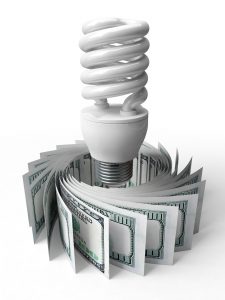 It’s time to take control over your monthly spending. You’ll find a lot of advice out there on the internet about how to reduce your bills and cut out unnecessary spending—cancelling unused subscriptions and memberships, for one—but unless you reassess the amount of energy used in your home, bills will remain high. This is especially true as we move into another hot and humid spring and summer, so it’s time to take action.
It’s time to take control over your monthly spending. You’ll find a lot of advice out there on the internet about how to reduce your bills and cut out unnecessary spending—cancelling unused subscriptions and memberships, for one—but unless you reassess the amount of energy used in your home, bills will remain high. This is especially true as we move into another hot and humid spring and summer, so it’s time to take action.
From simple mistakes to structural problems within the home, there are a few issues around the house that may be causing an unnecessary spike in your monthly bills.
Leaving lights and appliances on
Forgetting to switch off lights around the house may not seem like a big deal, but it can raise your energy bills in a major way (depending on the type and amount of lighting you have). The same can be said for leaving on appliances you aren’t using.
Make it a habit in your household to shut off lights as people leave a room. In addition, use power strips and plug in toasters, televisions, DVD players, and more. That way, you can turn the appliances on and off, depending on whether they are in use. And try not to spend too long of a time with the refrigerator door open—or to fall asleep with the TV on!
Using old inefficient lightbulbs
If it’s been many years since you’ve replaced your lightbulbs, or if you typically buy the least expensive bulbs you can find, you likely use incandescent light bulbs. Incandescent bulbs use a lot of energy, as about 90% of the energy they use is lost as heat and only 10% goes toward lighting the room. Compact fluorescent lamps (CFLs) and light emitting diodes (LEDs) are a much more energy efficient solution. This type of lighting tends to last for longer anyway, and is an investment in long-term savings.
Keeping the Air Conditioner/Heater On
Get a programmable thermostat to help you keep track of your energy use. Your air conditioner should not be at full blast day and night, nor should you keep it at a lower temperature than you need. The Department of Energy recommends that you keep the air conditioner at about 78°F when you are home and to raise the thermostat by about 10° while you are away.
Choosing Not to Make Energy Efficient Home Upgrades
Your home may be the reason your air conditioner wastes energy in the summer and your heater wastes energy in the winter. Poor insulation, air leaks around windows and doors, and older cooling equipment forces your air conditioner to run for longer. But it may be difficult to see these problems with your home unless you are an expert technician.
The best way to find out whether your home is wasting energy is by scheduling an energy audit with a qualified HVAC technician. They can provide tests and inspections to determine how your home is wasting energy, and can recommend or schedule improvements.
For an energy audit in Upper St. Clair, call Boehmer Heating & Cooling for exceptional customer service!


